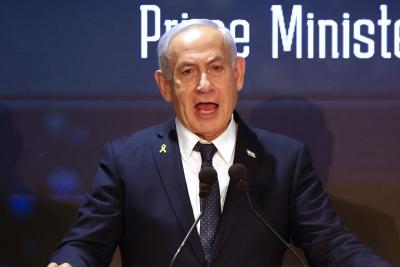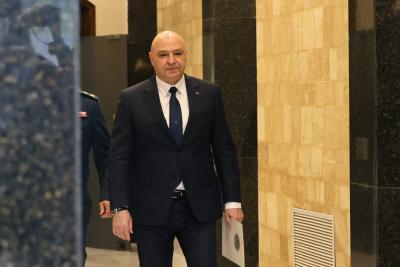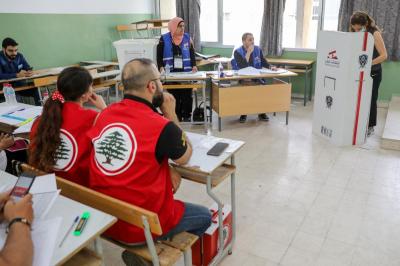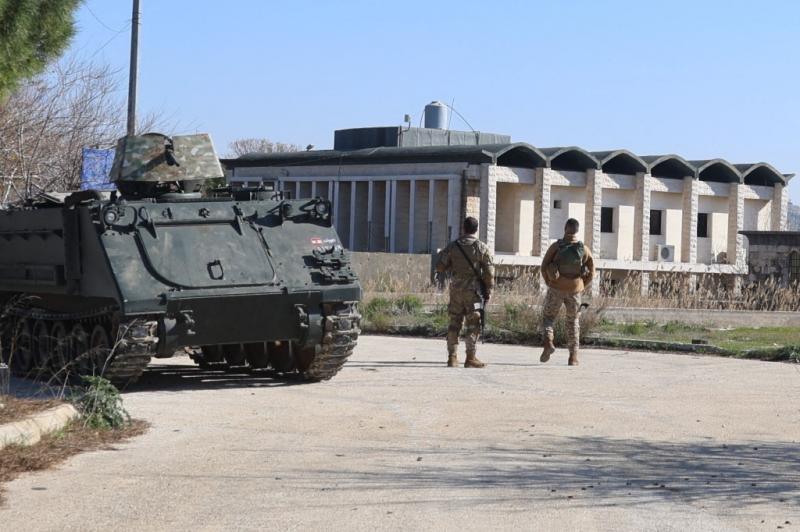The recent security and military appointments in Lebanon passed with minimal political noise, despite some controversy, particularly regarding the issue of weapons raised by certain ministers. Similar circumstances are expected to surround upcoming appointments. However, the government's primary focus remains on securing a full Israeli withdrawal from Lebanese territory, under the ceasefire agreement and UN Resolution 1701. This would allow Lebanon to move forward with reconstruction efforts and implement necessary reforms, as demanded by international institutions and donor capitals willing to assist the country.
A Push to End the State of War
Observers following developments behind the scenes suggest that there is growing momentum toward "ending the state of war." They note that the United States is pressuring Israel to formally demarcate its land borders with Lebanon, much like the maritime border agreement. However, Tel Aviv insists that before this can happen, Lebanon must fully implement Resolution 1701, which includes compliance with two other key resolutions: Resolution 1559, which calls for the disarmament of all Lebanese and non-Lebanese militias, and Resolution 1680, which mandates Lebanon to control its border with Syria to prevent arms smuggling to Hezbollah and other factions.
Israel and the U.S. base their approach on the principle that "Hezbollah cannot remain a military force stronger than the state within the state." This aligns with Washington’s stance on similar armed groups, such as the Popular Mobilization Forces in Iraq, the Rapid Support Forces in Sudan, and Haftar’s forces in Libya.
Some sources with insight into the U.S. position argue that the issue is no longer merely about Hezbollah’s disarmament south or north of the Litani River. Rather, it extends to a broader question: Will Lebanon share the fate of Iraq, Syria, Libya, Sudan, and other states that have undergone similar interventions?
Lebanon’s Firm Stance: The Ceasefire, Not Peace or Normalization
While the U.S. and Israel pursue their agenda, Lebanon remains firm in its stance—insisting that Israel adhere to the Armistice Agreement signed in March 1949, without entertaining discussions about peace treaties, normalization, or diplomatic relations. Lebanon considers the ceasefire sufficient to maintain border stability, as was the case before Israel's successive invasions, beginning in 1978 and culminating in the most recent incursion in October.
Other matters, such as Hezbollah’s weapons, are considered internal Lebanese issues to be addressed through a national conference that would formulate a defense strategy integrating Hezbollah’s arsenal into the state’s framework. This conference, to be convened and sponsored by President Joseph Aoun, would formally conclude the state of war—without requiring normalization or agreements that Lebanon cannot politically or socially afford, even if other Arab nations choose to normalize ties with Israel.
Proponents of this stance point to the failed May 17, 1983, agreement, which was never implemented and did not compel Lebanon to establish embassies or normalize relations with Israel. They argue that if Israel simply honors the Ceasefire Agreement, Lebanon’s relationship with it would resemble that of Russia and Japan or the two Koreas—where hostilities have ended through an agreement of non-aggression, yet without full diplomatic recognition. These agreements have been held without violations.
Between War and Normalization: A Middle Ground
The Lebanese perspective, therefore, lies between full-scale conflict and outright normalization. The proposed resolution is a return to the Ceasefire Agreement, which, since its signing in 1949, has not imposed any obligations on Lebanon beyond maintaining a ceasefire. There is national consensus in Lebanon on ending the state of war, ensuring Hezbollah operates under state authority, and committing to a unified defense strategy.
Hezbollah itself has expressed support for limiting arms to state control, affirming its alignment with Lebanon’s institutions. It insists that Lebanon's remaining occupied territories must first be liberated before discussions on disarmament take place—framing this as an internal and sovereign matter unrelated to Israel. However, Israel, backed by the U.S., wants the disarmament issue settled before withdrawing from the remaining occupied hills and surrounding areas, which it currently considers as a unilateral buffer zone.
Unresolved Priorities and External Pressures
So far, no definitive resolution has been reached between these competing priorities. President Aoun and Prime Minister Nawaf Salam continue to insist on Israel’s full withdrawal under the ceasefire agreement and Resolution 1701, emphasizing that Lebanon has met its commitments. They have called on the U.S., France, and the broader international community to pressure Israel into halting its daily ceasefire violations and completing its withdrawal from Lebanese territory.
Meanwhile, the Lebanese president is preparing to convene a national dialogue conference to finalize a defense strategy, which would address Hezbollah’s arms and other related issues.
On the other hand, the U.S. and Israel remain steadfast in their demand for the implementation of Resolutions 1559 and 1680, viewing them as integral to Resolution 1701. Israel’s continued violations of the ceasefire appear to be part of a broader strategy to pressure Lebanon into compliance. Ultimately, the final decision may depend on the political calculations of U.S. President Donald Trump, who has previously pledged to secure peace for Lebanon during his campaign and in outreach to Lebanese-American communities in Michigan and beyond.
For Lebanon, however, the course remains clear: adherence to the Ceasefire Agreement—without normalization.
 French
French














